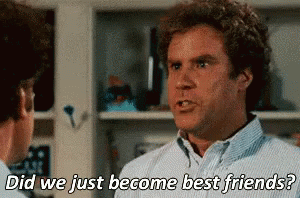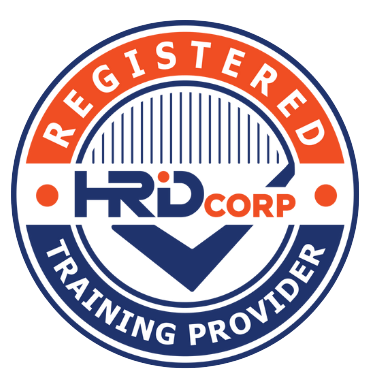Cultivating Connection: The Modern Leader's Guide to a Thriving Workplace
Is your team productive but feeling distant? Do you want to build a resilient, engaged workforce that can navigate change with ease? The key might not be in a new software or a bigger budget, but in a skill often overlooked: social health.
Social health is our ability to build and maintain meaningful, healthy relationships. It's the invisible thread that connects a team, and for modern leaders, it's a strategic advantage. It's not about being best friends with your colleagues; it's about building trust, communicating with clarity, and fostering a sense of belonging. The skills we hone in the workplace, such as listening, empathy, and conflict resolution, are not just "professional" skills. They are life skills that will sustain us far beyond our careers, as they are the very skills that form the bedrock of a happy, healthy life.
In this guide, we'll explore why investing in social health is the smartest strategic move a leader can make, backed by compelling data and research. We'll also provide a roadmap for how to start building a more connected, thriving team today.
The Business Case for Connection: Boosting Performance and Retention
The notion that social health is a "soft skill" with little bearing on the bottom line is outdated. In today's competitive landscape, it's a hard driver of business success. Recent research from leading institutions paints a clear picture: a connected team is a high-performing team.
Higher Productivity and Innovation
A landmark Gallup report found that employees who feel connected to their team are 12% more productive. This isn't just about efficiency; it's about synergy. When people feel safe and valued, they're more likely to share ideas, challenge the status quo, and take creative risks - the very things that fuel innovation.
A study published in the Journal of Organizational Behavior reinforced this, showing that high-quality social connections at work lead to greater employee engagement and, consequently, superior task performance. It's a simple truth: people who feel supported are empowered to do their best work.
Increased Retention and Loyalty

The cost of employee turnover is staggering, ranging from one-half to two times an employee’s annual salary. Strong social ties are a powerful antidote. A well-known Gallup study found that people are 3.5 times more likely to stay in their job if they have a best friend at work. This isn't just anecdotal; it's a powerful predictor of retention. When employees have a support network, a sense of belonging, and people they can rely on, they are less likely to seek opportunities elsewhere. A strong team becomes a significant reason to stay.
Reduced Burnout and Enhanced Resilience
The U.S. Surgeon General has identified workplace loneliness as a major driver of burnout and a public health crisis. Loneliness and isolation are not merely emotional issues; they have tangible health consequences, including increased stress and a higher risk of physical illness.
By fostering social health, you're building a support system that increases team resilience. A team with strong connections can navigate setbacks and periods of change with greater agility and less stress. They have a built-in network to lean on, which prevents individual members from carrying the entire burden alone.
Redefining Connection: It's Not a Trait, It's a Skill
For many of us, the idea of "connection" feels intangible. Some would say it's too soft a soft skill - and it couldn't be further from the truth. Deloitte Global’s 2025 Gen Z and Millennial Survey reveals that more than 8 in 10 Gen Z's and millennials say developing soft skills is even more important for career advancement than honing technical skills.
We assume some people are just naturally good at it, while others aren't. We believe it's a personality trait - diminishing it to introversion or shyness. In short, it's something you either have or you don't. But this is a fundamental misconception, and it's holding many workplaces back.

Connection is not a gift; it's a skill. And like any skill, it must be learned, nurtured, and practiced deliberately. Just as we wouldn't expect someone to excel at public speaking or coding without training, we can't assume our teams will naturally develop the deep relationships required for high performance.
The skills of connection - empathy, active listening, and open communication - are the very things that allow us to move past superficial interactions and build real trust. They are the same skills that sustain us in our personal lives, helping us form lifelong friendships and build strong families. By recognising that these are teachable, learnable skills, leaders can move from hoping their team will connect to actively providing them with the tools and training to do so. This small shift in perspective is the first step toward building a truly human-centric workplace.
The New Bottom Line: Why Belonging is a Must-Have for Gen Z
The importance of connection isn't just about fostering a positive environment; it's a critical component of attracting and retaining the next generation of talent. Gen Z, now making up a significant portion of the workforce, is rewriting the rules of what they expect from an employer. Their priorities are often different, and honestly, sometimes confronting, to those of their millennial and boomer leaders.
For older generations, a good job was often defined by stability, a clear career ladder, and financial security. While these factors are still important to Gen Z, their top priorities are shifting towards a holistic sense of well-being, social purpose, and above all, belonging.
Belonging over a Big Paycheck: A study from Reward Gateway Australia found that over half of Australian employees believe that a feeling of belonging at work is more important than a 10% pay rise. This is a profound shift.
The Power of Inclusion: A 2024 Deloitte survey revealed that 82% of Gen Z workers consider a company's diversity, equity, and inclusion (DEI) efforts critical when choosing an employer. They don't just want to be included; they want to feel a genuine sense of belonging where their unique perspectives are valued and respected.
This shift places a new responsibility on leaders to move beyond old assumptions.
The Power of Acknowledgment: Shifting from "Work Speaks for Itself" to Active Recognition
A common ethos among older generations (millennials and maybe, baby boomers) has been the belief that hard work and quality results should speak for themselves. The focus was on the output, with the expectation that good work would be noticed and rewarded without the need for outward praise.
Admittedly, I fell into this camp too.
While this approach may have worked in the past, it falls short with today’s younger workforce. The new generation is not just looking for a clear career path; they are looking for continuous feedback, validation, and a sense of being valued. They want to know their contributions, both tangible and intangible, are seen and appreciated.
This generational shift places a new responsibility on leaders. It’s no longer enough to assume that an employee knows they’re doing a good job. We must actively and verbally acknowledge it.
Verbalise the wins: Make a conscious effort to praise good work publicly in team meetings or privately in one-on-ones. This could be for a tangible achievement, like completing a project ahead of schedule, or for an intangible one, like the way a team member handled a difficult client with grace.
Acknowledge the intangible: Recognition shouldn’t be reserved for major milestones. Acknowledge the little things that contribute to a positive team environment, such as a colleague offering to help on a project, or someone being a great sounding board for an idea. These small acts of recognition build psychological safety and reinforce the behaviours you want to see.
By shifting our mindset from "work speaks for itself" to actively and intentionally verbalising our appreciation, we bridge the generational gap and create a more inclusive and motivating culture for everyone.
Immediate Actions: 3 Ways to Build Social Health Today
You don't need a formal training program to start. The journey toward a more connected workplace begins with small, intentional actions. Here are three simple, powerful things you can do right now to cultivate a more connected team:
1. Start Meetings with a Check-In
This simple act is surprisingly powerful. During the first few years of working in Australia, I found the ritual of starting a meeting with a personal check-in, "How was your weekend?" or "What's one thing you're looking forward to?" to be strange and even a little inefficient.
I was used to diving straight into the agenda.
But over time, I experienced the full value of it: genuine care, interest, and investment in my well-being as a person. It was through these check-ins that I began to feel truly seen and valued, not just for the work I produced, but for who I was.
Try it in your next meeting. Spend the first five minutes asking an open-ended question that has nothing to do with work. This signals that you value your team as people, not just as employees.

2. Create a "Kudos" Ritual
I once worked on a team where complaints, negative talk, and blame had become a pervasive habit. The energy was draining, and it was clear our culture was suffering. As a team, we decided to make a small, intentional change: we would dedicate the first few minutes of our weekly meeting to sharing a "kudos."
Anyone could publicly thank or appreciate a teammate for something they did, big or small. It felt awkward at first, but soon, this little ritual transformed our dynamic. The positive talk started to spill over into our daily conversations. It reminded us that we were all in this together and built a culture of gratitude that replaced the old habits of blame.
Set up a dedicated channel on Teams or a standing agenda item where team members can publicly appreciate each other. This simple ritual reinforces a positive feedback loop and makes every team member feel seen and valued.
3. Encourage "Walk and Talk" Meetings
For one-on-one catch-ups or casual brainstorming sessions, suggest a short walk around the block. Moving a conversation out of a formal meeting room and into a more natural environment can lead to more relaxed, authentic dialogue and a stronger connection. It’s a subtle but effective way to break down professional barriers and get to know each other on a more human level.
By taking small, consistent steps to prioritise social health, you can transform your workplace from one that simply performs to one that truly thrives. How will you start building a more connected team today?
Most read articles:
HRDC Claimable Training Programs
Looking for quality and effective training for your workplace? View our training programs to nurture high-performing workforces.
A Malaysian-based corporate training and coaching collective specialising in leadership development, communication skills, and workplace wellbeing.
Serving organisations across Klang Valley (Kuala Lumpur, Selangor), Penang, Johor Bahru, and Malaysia-wide
HRDC Registered Training Provider
Company Registration: 202501014734


For Organisations
HRDC Corporate Training Programs
Emotional Intelligence Workshops
Communication Training
Mental Health Awareness & First Aid
Team Building & Retreats
Leadership Coaching
Custom Corporate Programs
Company
About Physis
Our Trainers
Resources & Insights
Contact Us
For Individuals
1:1 Personal Coaching
Individual Leadership Coaching
Stay Connected
Get insights on leadership development and workplace wellbeing delivered monthly.
© 2026 Physis Global Sdn Bhd. All rights reserved. | 202501014734 (1616148-X)
Privacy Policy. Terms of Service.

